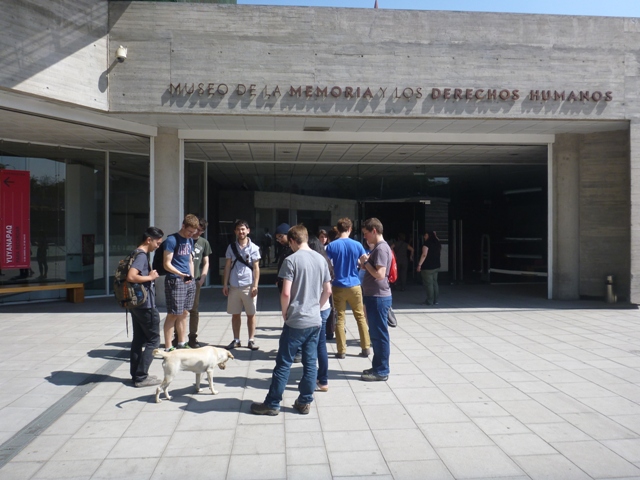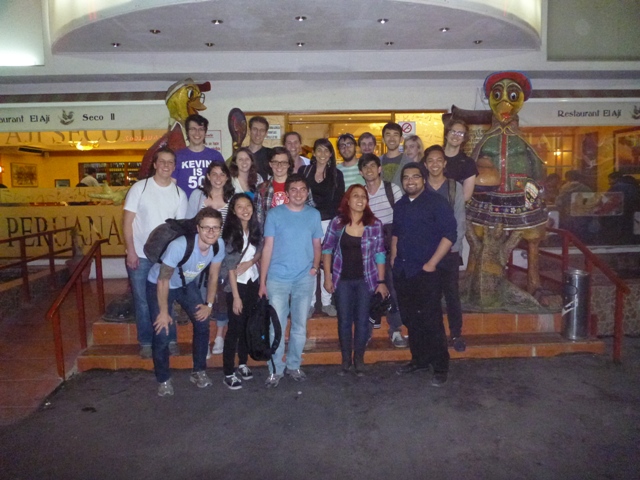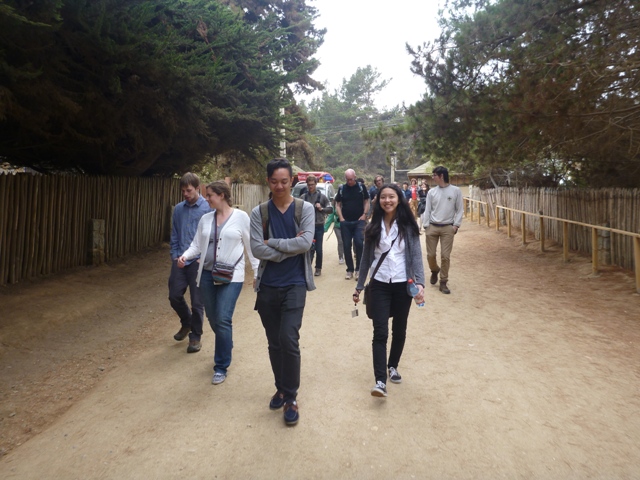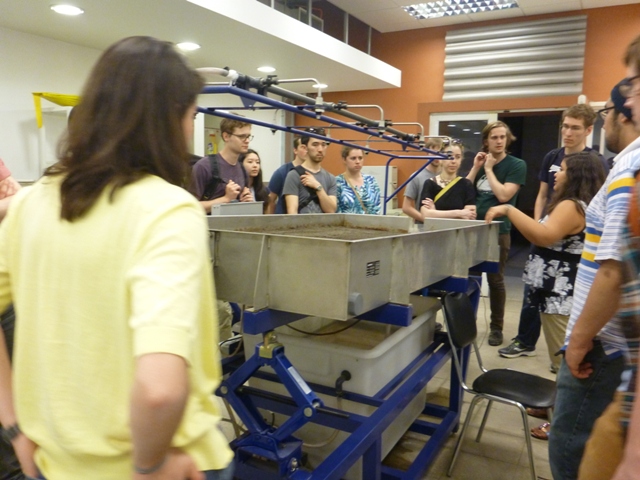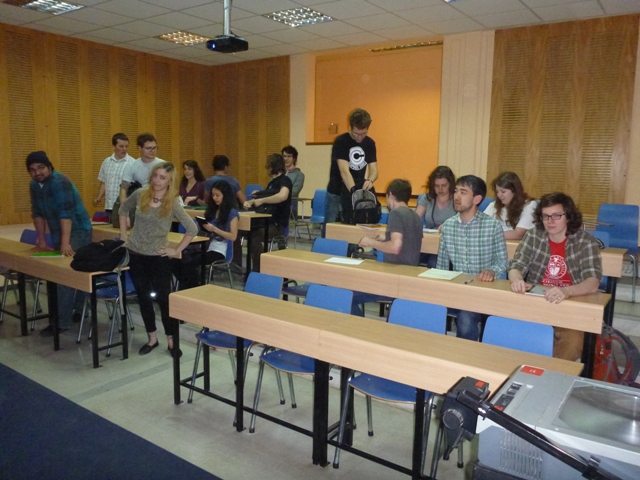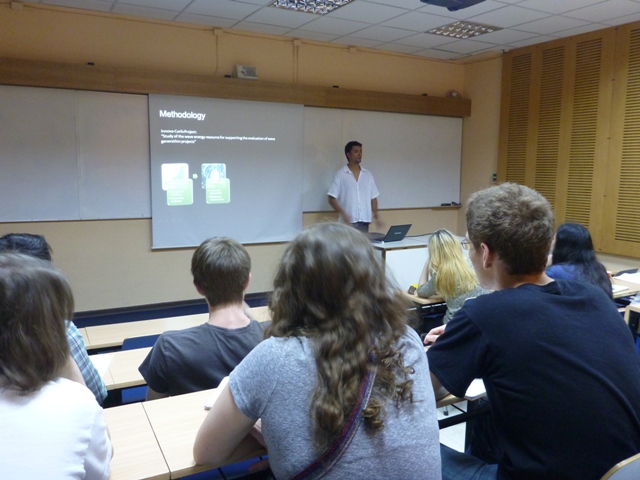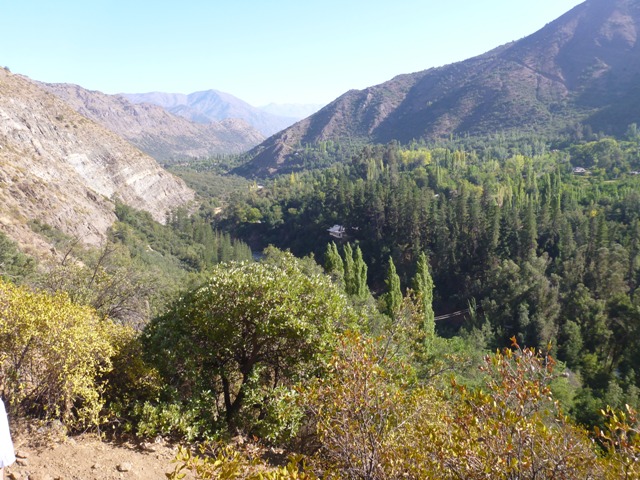During winter quarter 2014,
Dr. John Carter taught a course entitled Mathematical Models
of Wave-Energy Extraction. The course was listed as a 300-level
course in the Mathematics, Mechanical Engineering, and Electrical &
Computer Engineering Departments. During the quarter we studied models of
water waves, wave-energy extraction devices, the associated
mathematics and engineering, and Chilean culture. After ten weeks of
preparation, both mathematical and cultural, we were ready to head to
Chile to learn from experts in the Department of Hydraulic and Environmental Engineering at the
Pontific Catholic University of Chile ("La Catolica"). This
department was chosen because of its excellent reputation and because
of the cutting-edge wave-energy research being done there. The Chile
portion of the course officially began the morning of Sunday, March
23rd and ended the night of Saturday, March 29th. The week was packed
with mathematics, engineering, science, and culture.
|
|
 Chilean flag on Cerro San
Cristobal Chilean flag on Cerro San
Cristobal
|
 Wave-Energy Extraction Course in Chile 2014
Wave-Energy Extraction Course in Chile 2014




